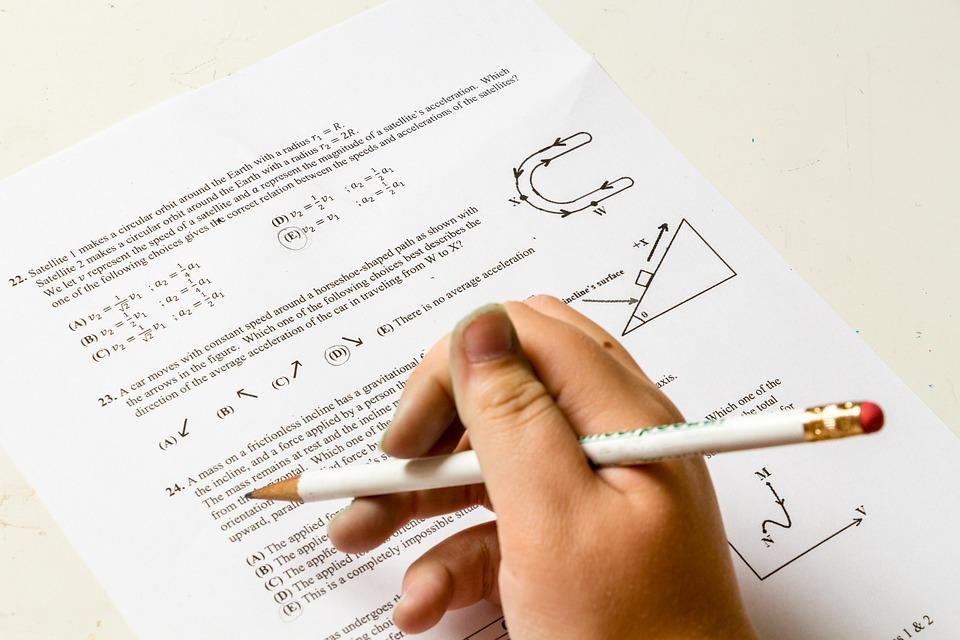Exam Cracking Techniques by Ashok Kumar
Solve the paper by adopting the “Round Technique”
● Round 1: Attempt all easy questions.
● Round 2: Attempt questions that you are sure about but require lengthy calculations.
● Round 3: Attempt questions that you have an idea about and just might find the answer if your approach is correct.
Minutes per Question
● The revised pattern of JEE (Main) 2021 has a total of 90 Questions (30 questions for each of the three sections i.e. Physics, Chemistry, Mathematics). Candidates are required to attempt 75 out of 90 questions (25 questions from each section).
● The total duration of examination: 180 mins
● If you leave the last 30 minutes for revision, minutes per question: (180 – 30)/75 = 2 min each
You have just 2 min to solve each question. Don’t linger!
(Note: Please note that this is just an approximation. The Minutes per Question ratio can increase or decrease for each question.)
‘Rough’ Skills
As the examination is held online, limited rough paper is provided to each student. Your handwriting should be legible and you must have an organized train of thought to be able to solve all the questions in the provided rough paper. Not only will you save space by keeping your calculations neat, but you will also avoid mixing up your questions while re-looking at them. This will narrow down chances of errors.
Be Systematic
Always start with your strongest subject to gain valuable confidence which will help you pull through the examination with ease. Hold your reins and keep your emotions in check even if things aren’t going your way. Follow your game plan and solve all the sections systematically. Try solving the easiest questions first as they are your gold mine. Leave the calculation-heavy questions for later as they will require your efforts and time.
Tag the Questions
While skimming through the paper, tag questions according to their difficulty level. You can adopt the following tips which will help you attempt your paper in an orderly manner. Use this code in your rough sheet to have a better outlook towards your plan of action.
● (✓): for the questions that you are confident about and you will certainly attempt.
● (X): for questions that you do not want to attempt because they are either too difficult, too time-consuming, or you simply don’t know the trailing concept.
● (?) : for questions that you want to attempt / re-attempt in Round 2/3, i.e. either you have partially solved them, or you are unsure of the answer, or you know them but might take time to solve.
You can also use NTA provided options to mark questions for review in the online format. It’s best to practice these in the NTA scheduled mock tests that are released before JEE Main.
Eye on the Clock
Don’t get so engrossed in the exam that you end up losing track of time. Meticulously plan your sections and lay down targets and stick to them.
Use Your Quirks
Have your very own quirky methods to quickly solve questions that don’t require much time. Time saved by your quirky methods can be used on working on lengthy questions. Learn new ways to solve a particular type of question during your preparation — elimination method, conceptual solving, by taking examples, intelligent estimation etc.
Speed + Accuracy
Always keep in mind that JEE is not just about speed. Accuracy plays a vital role as well. Many questions have similar options that demand pinpoint accuracy. Guess work is also not helpful in JEE. Do not forget that every guess-worked question might lead to negative markings.
Re-check Time
Once you are done solving the paper, spare some time for a thorough recheck. Compare your rough notes and your marked answers for discrepancies or any calculation mistakes. Spot check your answers with common sense to diagnose obvious errors.
Bonus Tip
Practice is the key. Timed practice not only makes you habitual to the pressures of within the given time limit, but it also provides you with a clearer picture of the issues you might face on the day of the examination.
-V.Ashok Kumar,Author of ‘The Killer Concepts of Physics’.

